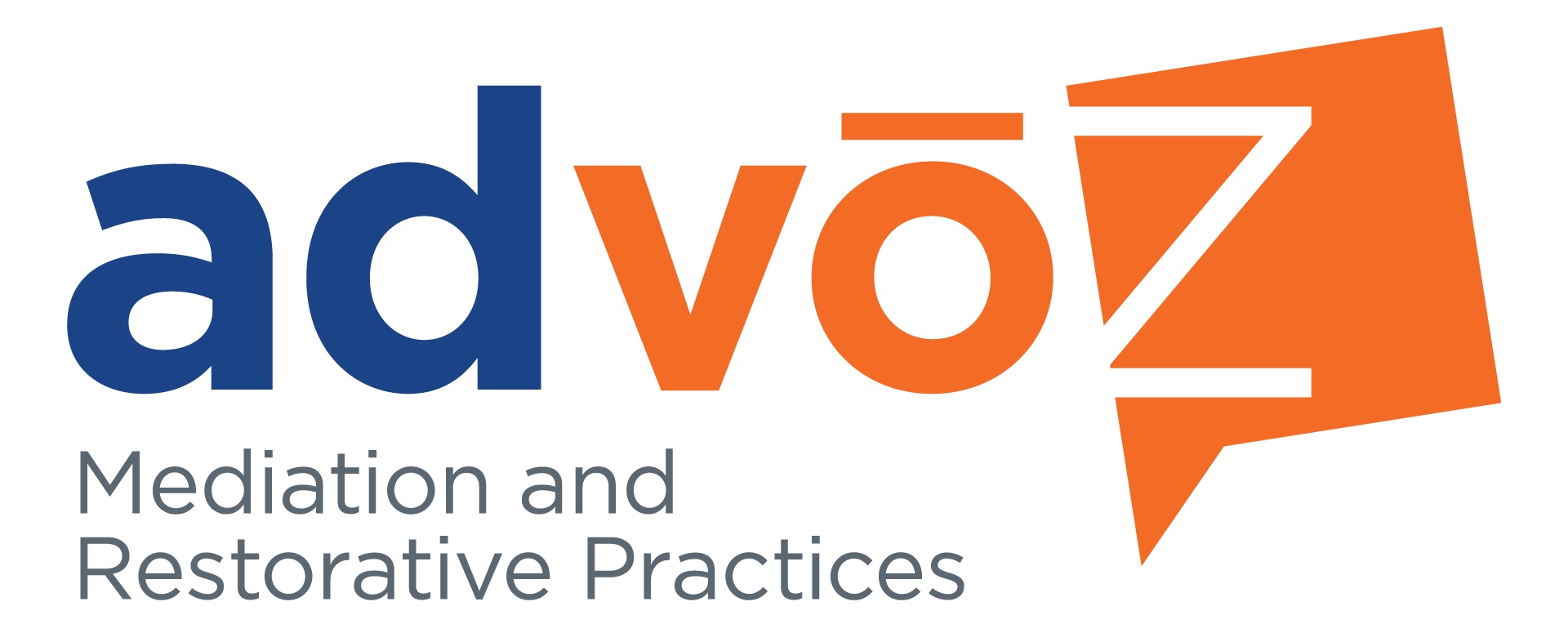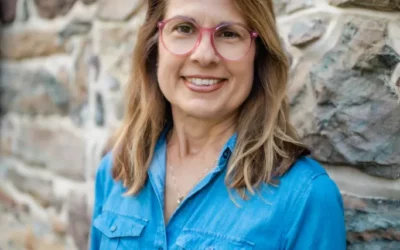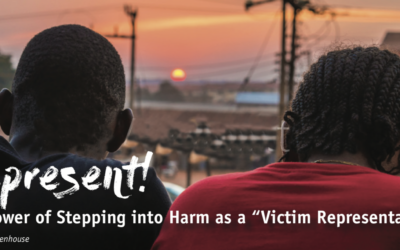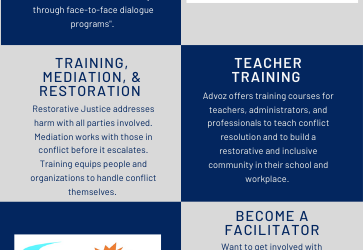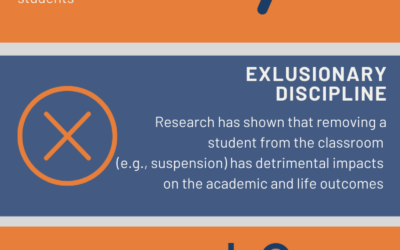By Skyler Gibbon, Advoz Intern
Hearing his father’s stories around the dinner table inspired Elliot Martin to get involved with Advoz. “It sounded beautiful. There are really important principles of restorative justice. Needing to address the harm in conflict is applicable to all of life. I think dad modeled that in some ways. He is an example of working that into the soul. I try to do that on my own, as well,” he conveys.
When they sat down for supper, Tim Martin, Elliot’s dad, veteran restorative justice facilitator with Advoz, would often tell him about “the case” he was working on and developments that happened. Tim found the stories intriguing.
Hearing Elliot tell his own story alongside his father, listening and communication emerge as a important theme. They are integral to restorative justice processes. Elliot reveals that his dad has confessed to having trouble being a good listener, but it’s something he’s been aware of, especially in the last decade. “Seeing him trying to improve his listening skills…seeing how important it is to him…that’s an edge and a challenge. Seeing him work on that was exemplary,” Elliot adds. Elliot was inspired to incorporate that value into his own life and relationships. His father also related to this notion.

“In the past 15 years, I’ve been working on myself and my own character defects,” Tim adds. By functioning as a facilitator, he’s been strengthening this area for himself and everyone around him.
Elliot participated in this spring’s restorative justice conferencing training, a program that equips him to facilitate face-to-face dialogue between “victims” and “offenders” who experience or inflicted harm in a crime. He has learned an immense amount already in his brief time volunteering. He finds that Advoz attracts a certain personality that holds certain values which he identifies with. The cases can be challenging, but he appreciates the support he receives. Elliot is energized by the challenge and likes putting the knowledge he has been given into practice. “I am an amateur and haven’t actually had a joint conference yet, so that’s something I am really looking forward to,” he says.
Elliot believes that working with Advoz is a great way for young people of his generation to become aware of the benefits of restorative justice. He encourages young people to attend a training, a great resource for helping with skills such as listening, conflict styles awareness, trigger words, and recognizing and addressing the harm. He also appreciated the wealth of literature available now in the field.
Elliot see empathy as vital to doing this work well. To anyone starting out, he emphasizes the importance of being gracious, recognizing the good, not judging people and becoming aware of where an “offender” might be coming from. He advises new facilitators not to jump to conclusions about why people do the harmful things they do. “Preparing oneself to be really empathetic is important, and also to be curious and open to learning constantly…and not just thinking about how people should be,” Elliot implores.
Tim, his father, agrees that patience and understanding is essential to a facilitator’s role. “I just try to keep an open mind. It’s complex. You don’t know what they are going through,” Tim adds. There is often a lot of stimulation and inattentiveness to the children when he arrives at some of his meetings. “As you listen, sometimes you get surprised at some of their answers. They are not what you expect. One of the kids’ needs is being listened to, because (often) nobody listens to them.”
Tim and Elliot believe giving the kids a well-formed space to use their voice can be meaningful for them–and transforming. “Sometimes the parents want to talk for the kid,” Tim adds. And he knows all about the challenges—and triumphs–of learning to listen better.
Elliot continues to learn from his dad’s example…and to grow in his own journey of learning and empathy for people he’s met through the restorative justice process. And now, they can bond over it, together, at the dinner table.
